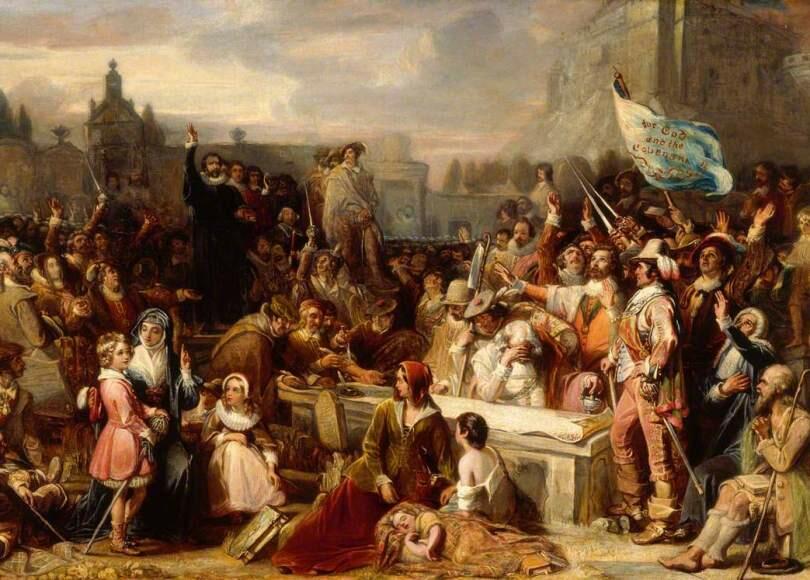
Foundations II: The Question of Canon
Introduction/Review
The Nature of the Bible as Revelation
Why examine the Question of Canon?
The Identity of the New Testament
Criteria for Canonization
- Date
- Authorship
- Content
- Consensus of the Fathers
Universally Accepted Universally Rejected Debated
Matthew Gospel of Thomas Hebrews
Mark Gospel of Mary 2 Peter
Luke Gospel of Judas James
John Secret Book of John Jude
Acts On the Origin of the World 2nd John
Romans Thunder 3rd John
1 & 2 Corinthians The Gospel of Philip Acts of Paul
Galatians The Gospel of Truth Shepherd of Hermas
Ephesians The Secret Book of James Didache
Philippians The Book of Baruch Apocalypse of Peter
Colossians The Song of the Pearl Gospel of Hebrews
Philemon The Round Dance of the Cross Barnabas
1st & 2nd Thessalonians 1 Clement
1st & 2nd Timothy
Titus
1 Peter
1 John
Revelation
Universally Accepted Books
Date
Authorship
Content
Consensus of the Fathers
“The third book of the gospel: according to Luke. After the ascension of Christ, Luke the physician, whom Paul had taken along with him as a legal expert, wrote [the record] down in his own name in accordance with [Paul’s] opinion. He himself, however, never saw the Lord in the flesh and therefore, as far as he could follow [the course of events], began to tell it from the nativity of John. The fourth gospel is by John, one of the disciples.” - Muratorian Fragment (2nd Century)
“Matthew published among the Hebrews a gospel in writing, also in their own speech, while Peter and Paul were preaching the gospel and founding the Church in Rome. After their death Mark in turn, Peter’s disciple and interpreter, delivered to us in writing the contents of Peter’s preaching. Luke also, the follower of Paul, set down in a book the gospel preached by him [i.e. by Paul]. Then John, the disciple of the Lord, the one who leaned back on his bosom, gave forth his gospel while he was living in Ephesus in Asia.” - Irenaeus (Early 2nd Century - 202 AD)
Universally Rejected Books (1 Timothy 6:20; 1 John 4:2,3)
Date
Authorship
Content
Consensus
Debated Books
Two Categories
Accepted Books (Hebrews, 2 Peter, James, Jude, 2nd and 3rd John)
Orthodox yet rejected
-Apostolic Fathers (Shepherd of Hermas, Epistle of Barnabas, 1 Clement,
Didache,)
-Apocrypha (Acts of Paul, Apocalypse of Peter, Gospel of Hebrews [?])
The Identity of the Old Testament
“We believe that the Holy Scriptures are contained in two books, namely, the Old and the New Testament, which are canonical, against which nothing can be alleged. These are thus named in the Church of God.The books of the Old Testament are the five books of Moses, to wit: Genesis, Exodus, Leviticus, Numbers, Deuteronomy; the book of Joshua, Judges, Ruth, the two books of Samuel, the two of the Kings, two books of the Chronicles, Ezra, Nehemiah, Esther; Job, the Psalms, the three books of Solomon, namely, the Proverbs, Ecclesiastes, and the Song of Songs; the four great prophets, Isaiah, Jeremiah, (Lamentations), Ezekiel, and Daniel; and the twelve lesser prophets, namely, Hosea, Joel, Amos, Obadiah, Jonah, Micah, Nahum, Habakkuk, Zephaniah, Haggai, Zechariah, and Malachi.” - Belgic Art 4A
“We distinguish those sacred books from the apocryphal, viz: the third and fourth books of Esdras, the books of Tobit, Judith, Wisdom, Jesus Sirach, Baruch, the Appendix to the book of Esther, the Song of the Three Children in the Furnace, the History of Susannah, of Bell and the Dragon, the Prayer of Manasseh, and the two books of the Maccabees. All of which the Church may read and take instruction from, so far as they agree with the canonical books; but they are far from having such power and efficacy that we may from their testimony confirm any point of faith or of the Christian religion; much less may they be used to detract from the authority of the other, that is, the sacred books.”
The Septuagint (LXX)